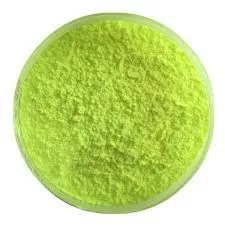Industrial Water Treatment Chemicals Essential Solutions for Sustainable Practices
Water is undoubtedly one of the most vital resources for various industrial processes. However, the quality of water used in these processes can significantly impact efficiency, product quality, and environmental compliance. As industries strive to meet regulatory standards and continue sustainable practices, treating industrial water has become a critical focus. The role of industrial water treatment chemicals in this context cannot be overstated.
Understanding Industrial Water Treatment
Industrial water treatment involves several processes designed to make water suitable for a specific industrial application. This may include removing impurities, managing scaling and corrosion, and ensuring that the water meets regulatory standards for discharge. The choice of treatment method often depends on the source of the water, the intended use, and the local regulations governing water quality.
The treatment process typically consists of several stages, including pre-treatment, primary treatment, and sometimes post-treatment to ensure that the water is safe and appropriate for its intended use. Each stage may employ various chemicals designed to facilitate specific reactions or processes.
Key Chemicals in Industrial Water Treatment
1. Coagulants and Flocculants These chemicals are crucial in the removal of suspended solids from water. Coagulants, such as aluminum sulfate or iron salts, work by neutralizing the charges on particles, allowing them to group together (or coagulate). This is followed by the addition of flocculants, which facilitate the agglomeration of larger particles, making it easier to remove them through sedimentation or filtration.
2. pH Adjusters The pH of water can significantly affect its corrosivity, biological stability, and the solubility of contaminants. Chemicals such as sulfuric acid, sodium hydroxide, or lime are often used to adjust the pH levels to optimal ranges for various treatment processes.
industrial water treatment chemicals

3. Antiscalants These chemicals combat the formation of scale — mineral deposits that can accumulate in pipes, boilers, and cooling systems. Antiscalants inhibit the crystallization processes, thereby preventing or minimizing scale formation, which can enhance system efficiency and reduce maintenance costs.
4. Biocides and Disinfectants Maintaining a microbiologically stable environment is essential in industrial water systems. Biocides, which can include chlorine, bromine, or quaternary ammonium compounds, are used to control microbial growth and prevent biofilm formation. This is critical for systems such as cooling towers, where biofilms can hamper heat transfer efficiency.
5. Corrosion Inhibitors Industrial systems often encounter metal surfaces that can corrode over time due to chemical reactions with the water. Corrosion inhibitors, which can be organic or inorganic compounds, are used to form a protective layer on metal surfaces, thus extending the life of machinery and infrastructure.
Sustainability and Regulatory Compliance
In recent years, there has been a significant push towards sustainable water management practices. The careful selection and application of industrial water treatment chemicals can contribute to reduced water usage, enhanced recycling of water, and compliance with environmental regulations. Many industries are now adopting green chemistry principles to minimize the environmental impact of the chemicals they use.
Additionally, advancements in technology have paved the way for more effective methods of water treatment. Innovations such as membrane filtration, advanced oxidation processes, and nanotechnology are being explored to improve efficiency while minimizing harmful chemical usage.
Conclusion
Industrial water treatment is an indispensable aspect of modern manufacturing and processing industries. The effective use of water treatment chemicals not only helps in achieving regulatory compliance but also furthers the goal of sustainable operations. As industries evolve and environmental concerns continue to grow, the focus on innovative and eco-friendly water treatment solutions will remain paramount. Embracing these practices will ensure that industrial water treatment remains robust, efficient, and aligned with global sustainability goals.

